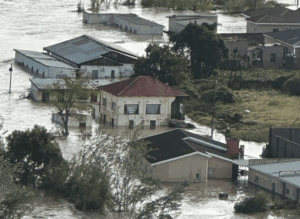As South Africa braces itself for an escalating energy crisis, the nation’s principal power supplier, Eskom, warns of imminent power cuts that could last up to 32 hours in the coming weeks. This news follows the power utility’s struggle to meet the country’s rising electricity demand, further exacerbated by a myriad of challenges, including a coal shortage, labour strikes, and technical disruptions at its power stations. The anticipated power cuts have the potential to deal a heavy blow to an already strained economy, impacting businesses, employment, and the everyday lives of ordinary South Africans. The government, while cognizant of the severity of these issues, is yet to provide a clear roadmap to recovery. This article delves into the details of this impending crisis, its potential ramifications, and the urgent call for sustainable solutions.
Table of Contents
Load-shedding getting worse.
South Africa’s power crisis is set to deepen, as state-owned power utility, Eskom, raises an alarm that power cuts of up to 32 hours could potentially be experienced across the nation in the coming weeks. The utility is grappling with a confluence of predicaments that have resulted in its struggle to meet the nation’s escalating electricity demand. Factors contributing to this distressing situation include a critical shortage of coal, industrial action by its workforce, and a significant technical malfunction at one of its power generation facilities.
Eskom, which supplies about 95% of South Africa’s electricity, has issued a plea to the populace to moderate their use of electricity to help curtail the severity of the impending power cuts, known locally as ‘load shedding.’ The utility acknowledges the complexity of the issues that have led to the anticipated power cuts and emphasizes that while it is making every effort to rectify the situation, the resolution of these systemic problems will necessitate time.
The looming power cuts pose a substantial threat to the South African economy, with potentially far-reaching implications. Businesses, particularly small to medium-sized enterprises, which may not have the financial wherewithal to invest in alternative power sources, face the daunting prospect of temporary closures. This, in turn, could lead to job losses and a subsequent increase in the already high unemployment rate. The predicted power cuts also threaten to hamper economic growth, further burdening an economy already strained by the global economic downturn.
The impending power cuts also stand to adversely affect the quality of life of South Africans, as they grapple with prolonged periods of darkness. This could exacerbate social inequalities, with those less able to afford independent power sources being disproportionately affected.
What’s next for Eskom?
The South African government has acknowledged the severity of the challenges confronting Eskom. It has reassured the public that it is actively seeking solutions to these issues, but it has not offered a timeline for when the power utility is expected to regain its operational stability.
In the interim, South Africans are being urged to manage their electricity consumption conservatively and to brace for the likelihood of extended power outages. This precarious situation calls for a collective national effort to navigate these energy challenges, with a focus on both immediate power conservation and the exploration of long-term sustainable energy alternatives.

















